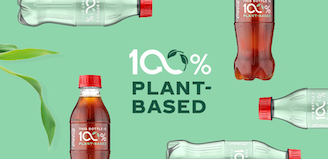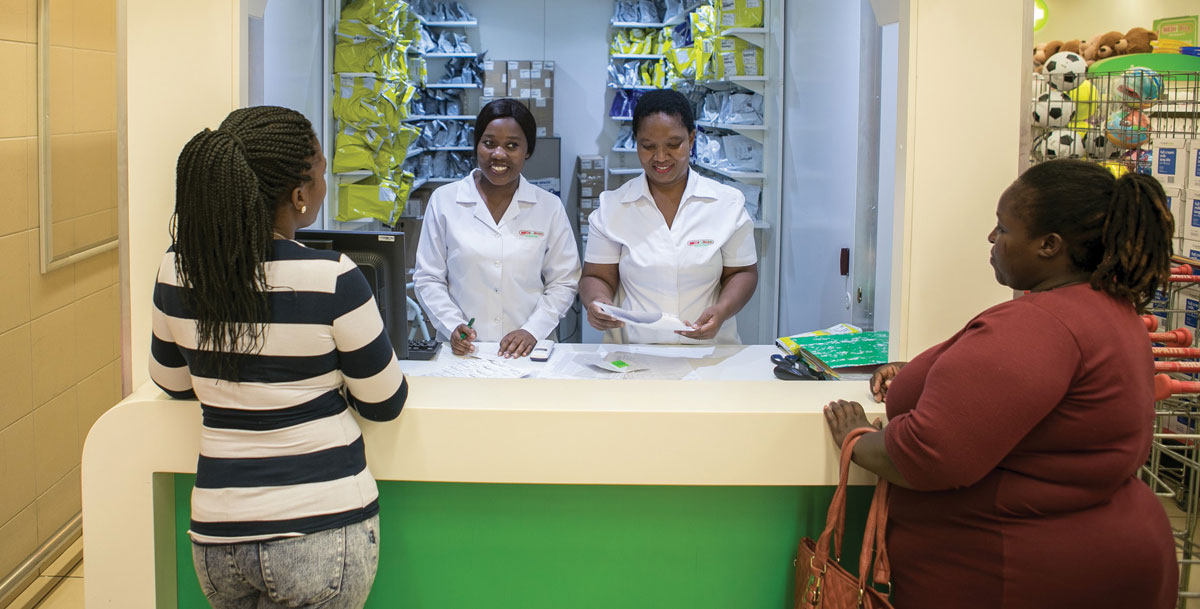
Coke Takes Minority Ownership Stake in Fast-Growing Suja Juice
Expanding Our Portfolio
08-19-2014
In just over three years, Suja has gone from a small home-delivery juice company to one of the country’s leading organic, cold-pressed juice brands. Now, thanks to a minority investment by The Coca‑Cola Company, the San Diego-based company is a step closer to achieving its simple, yet ambitious, mission to bring organic juice to the masses at an accessible price.
Suja, which Forbes named the No. 2 most promising company in 2015, has experienced unprecedented growth in the natural foods and conventional grocery channels, selling more than 40 million bottles, to date, of its organic juices produced using a breakthrough technology called High Pressure Processing (HPP) to preserve maximum nutrition and taste.
“When we started out, we couldn’t have imagined the incredible growth and consumer demand we face today,” said Jeff Church, co-founder and CEO, Suja. “As we continued to innovate and find ways to democratize juice, we soon realized that for us to take the business to the next level and provide cold-pressured juice to even more people, we needed to find the right strategic partner. Coca‑Cola has the ability to help us get there.”
Coca‑Cola’s investment will give Suja access to the global beverage company’s vast chilled distribution network – which currently delivers brands such as Odwalla and Simply, ice-cold, to stores across the United States – and help Suja boost manufacturing capacity to meet growing consumer demand for its products. Finally, Suja will leverage Coke’s supply chain and procurement network to source materials such as bottles and caps at a lower cost. The company remains committed to its promise to consumers – Suja juices and smoothies will always be USDA Certified Organic and cold-pressured using High Pressure Processing to kill any harmful bacteria and preserve maximum nutrition and taste.
“As we continued to innovate and find ways to democratize juice, we soon realized that for us to take the business to the next level and provide cold-pressured juice to even more people, we needed to find the right strategic partner. Coca‑Cola has the ability to help us get there.”
Suja offers three handcrafted lines of organic juices – Suja Classic, Suja Elements and Suja Essentials – at different price points and for different lifestyles.
Mike Saint John, president of Value Added Dairy and Natural Health Beverages at Coca‑Cola North America, said Suja will strengthen the company’s existing portfolio and help it break into the still-emerging premium juice category – which is growing at about 15 percent annually – with an ahead-of-the-curve brand.
“This is a huge complementary opportunity for us,” Saint John said. “Suja is one of the fastest-growing players in the natural health beverage segment. They’re on track to double their business this year. Half of this growth is coming from expanded availability, but the other half is due to their sales velocity. Consumers are clearly locked into the Suja proposition and are voting with their purchases.”
All brands in Coke’s Natural Health Beverages (NHB) portfolio – which includes Odwalla – appeal to different consumers for different beverage occasions. Therefore, there is limited overlap or intra-portfolio competition. “For example, Suja is very much a farm-to-table business with a strong vegetable focus, while Odwalla is very fruit-forward,” Saint John added.
Coca‑Cola North America’s Venturing and Emerging Brands (VEB) team, which helped establish the partnership with Suja, first noticed the company years ago. “Suja perfectly fits the trend of nutrient-rich, organic juices,” said Scott Uzzell, president of VEB. “We saw their success in the marketplace and began developing a relationship with them.”
From Niche to Mainstream
Church credits the convergence of several consumer trends with driving Suja’s rapid growth. First, Millennials, who account for the majority of the brand’s consumer base, crave innovative organic beverages. They also want labels that clearly and cleanly explain what they’re eating or drinking.
“Social media has been very beneficial to our business, too,” he added. “Over 50 percent of people who’ve tried our products were either introduced to us through a store sampling event or by a friend referral through social.”
Suja Essentials, the company’s lowest-priced offering at around $4 per bottle, launched in June 2014 and has been a big hit with retailers and fans alike. “It’s our scale driver,” Church said. “Retailers love it because it’s helping them grow their premium juice business and capture higher margins. And consumers love it because they’re getting an organic product that tastes fresh for less than half of what they’d pay at a juice bar.”
As proof that premium juices have graduated from niche to mainstream, a line of three Suja Essentials products designed to be consumed throughout the day – Sunrise Probiotic, Midday Thrive and Evening Protein – is currently exclusive to Target. According to Church, 60 percent of consumers who buy one of these products purchase all three at once. “Conventional grocery shoppers are clearly ready for products like these,” he added.
Suja’s products are currently sold in around 13,000 retail outlets nationwide. As part of the partnership agreement, Suja will continue to service existing customers and Coke will explore growth opportunities in new channels. Initial plans include introducing Suja to college and university campuses.
“The idea is to start small and scale fast… to quickly gather learnings and expand into more customer accounts next year,” Saint John said.
Suja will tap into VEB’s expertise in partnering and growing brands such as Honest Tea and ZICO. That, coupled with NHB’s strength and capability, will help Suja continue to expand and grow.
Brands and assets aside, both companies hope to learn from each other. “Coke is the world’s largest juice company with massive intellectual capital,” Church said. “We make five mistakes a day that – with the right guidance and leadership from those who have lived what we’re going through – we can avoid making going forward. They’ve been where we’re trying to go.”
Coke, meanwhile, can benefit from Suja’s entrepreneurial culture and ability to get a product from idea to market in a matter of weeks.
“The average age of our non-production team is 25… we’re a young company with lots of youthful energy and a maverick-like approach to cap-ex,” Church said. “We all want to be winners. Internally, we talk about Coca‑Cola as an iconic brand, the best of the best. And hopefully Coke looks at us in the same way.”


